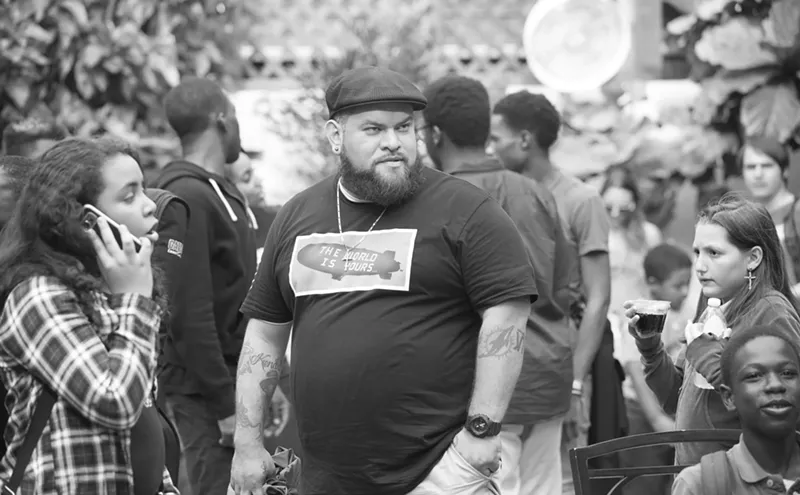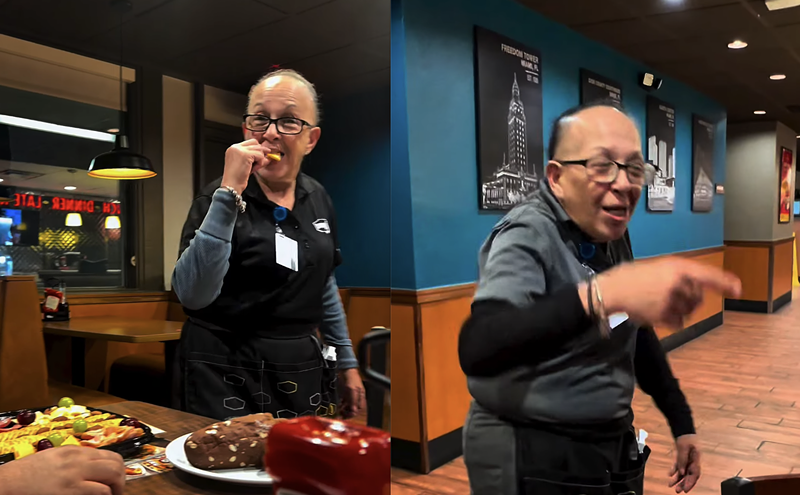Of course the film slaps away mightily at the Mormons' moral hegemony. In a typical digression, our heroes journey to Wyoming to buy "real" beer, because private stores in Utah can sell it with only half the normal alcohol (and the state-owned stores that sell the real stuff are punk-unfriendly and have bad hours). But there are no Mormon characters. What the setting mostly provides is a picturesque backdrop full of great swaths of "nothing" to the tear-it-down shenanigans of the blue-haired Stevo (Matthew Lillard) and the Mohawked Heroin Bob (Michael Goorjian). Heroin Bob, who somehow got his nickname because he refuses to use drugs, has a girlfriend named Trish (Annabeth Gish) who summarizes their point of view succinctly: "The police -- what an untidy group of little fascists. What do you expect in a town of God? Mormons run the state, and that is the state of things, I'm afraid." And I'm afraid that the friction between them and everyone else rarely gets more specific than that.
On its frenetic surface, the film offers a burlesque baedeker of the mid-Eighties youth scene in Squaresville, U.S.A.: Brit-inspired punks versus Yank-inspired punks versus Nazi punks, mods and rockers, and cowboys. What it offers at its shockingly sappy core is a familiar view of adolescent rebellion as a goofy but inevitable phase. Stevo wants to break out of the trajectory plotted for him by his Harvard Law-schooled father (Christopher McDonald, who appears in TV's Veronica's Closet), a Vietnam protest veteran who insists he hasn't "sold out" but "bought in." Heroin Bob fears that he'll grow up to be just like his paranoid, reclusive old man (and also worries that he somehow let the fearsome old coot down). As their season of protest winds down, these conflicts get resolved in the most shameless, heart-tugging way.
When I was growing up, anyone who dressed weirdly or threw a tantrum was said to be "acting out," externalizing some psychic blip or primal urge that couldn't be expressed otherwise. Stevo and his friends aren't even acting out; most of the time they're acting, period. Stevo is obsessed with unveiling poseurs (or, as he says, "posers"), until he finds that everyone he knows is one, including himself. But does writer-director Merendino know how shallow Stevo really is? Stevo keeps talking about anarchy when all he and his pals aspire to is an addled pop nihilism that finds beauty in "the end" and a connection in dance floor punch-outs.
If there were any depth in Merendino's script, his ensemble's collective performing style (wild mood swings rendered in seriocomic mugging or ostentatious deadpan) wouldn't find it. And if there were any resonance to their acting, Merendino's directing style would obscure it. Despite its free-form storytelling and hyperactive editing, the movie has an unsettling slickness. Stevo narrates straight to the camera, whether introducing (or reintroducing) characters or delivering a cheerfully useless little essay on the unknowable roots of punk violence. The result is as presumptuous as a stand-up comic pretending to be a monologuist. Stevo's punk world view doesn't encompass a vision of America's future; this film does not engender hope for the future of American movies.
SLC Punk!
Written and directed by James Merendino. Starring Matthew Lillard, Michael Goorjian, Annabeth Gish, and Christopher McDonald.








